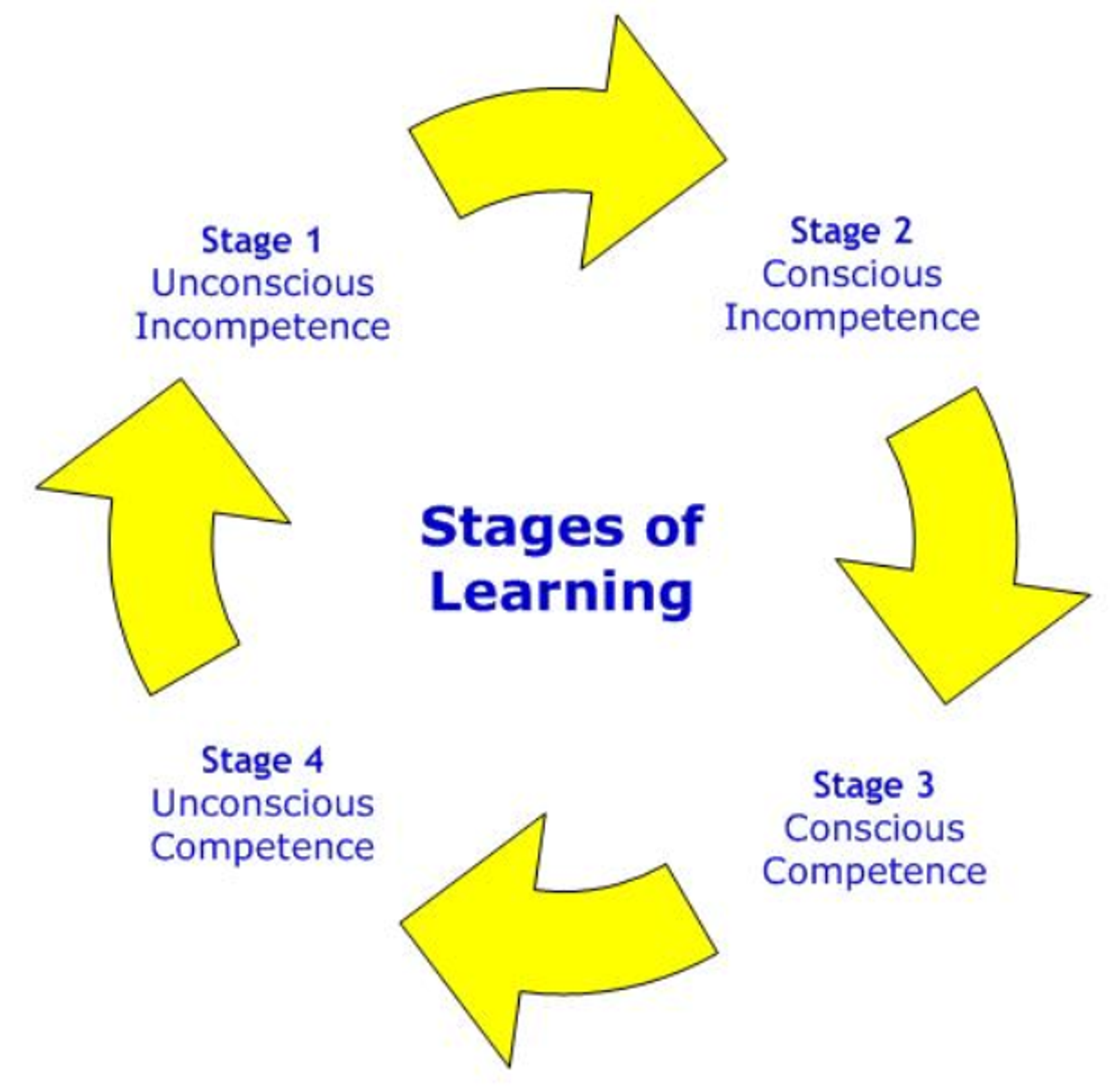A note from
Mr Day, Director of Studies

A note from
Mr Day, Director of Studies
It’s likely that if you are a parent of a child, then you have witnessed various stages of learning throughout your child’s development and growth. You have watched them learn to walk, speak, dress, and then more recently learn how to become a student at school, learning about many things in preparation for life as a well-adjusted and balanced young person. Learning happens in all environments, both positive and negative, and it is important to be conscious of the learning environments in which we place ourselves in order to achieve the goals we set.
Back in the 1970’s an employee (Noel Birch) at an international training organisation described a model for understanding unconscious learning, which he named ‘The Four Stages of Learning’. It suggests that ‘individuals are initially unaware of how little they know, and as they recognise their incompetence, they consciously acquire a skill, then consciously use it’ (Four Stages of Learning, n.d.).
The Four Stages of Learning
Unconscious Incompetence – The student does not understand or know how to do something and does not realise their short fall. They may also deny its usefulness. The student must recognise the value of this new skill before moving on. The length of time spent in this stage depends on the strength of the stimulus to learn.
Conscious Incompetence – The student recognises something they do not understand and its value. Making mistakes is integral to learning in this stage.


Conscious Competence – The student knows how to do something; however, doing the skill requires concentration. Breaking the skill down into smaller steps is key during this stage.
Unconscious Competence – The student has had so much practice that the skill has become ‘second nature’, and can now be performed whilst doing other tasks. The student may also be able to teach others this skill now.
Take Home Message
As teachers, our classrooms are constantly full of students who are at all ‘Fours Stage of Learning’. We continuously encourage our students to move to the next stage, and to inspire them to recognise the value of education. Please observe your student at home as they are learning, whatever the task. Be mindful of their progression throughout the four stages of learning and encourage them to always try to improve. If you work hard, you will improve, and ultimately achieve your goals.
Adam Day
Director of Studies
Adapted from:
Habits for Wellbing. (2013). The Stages of Learning. Retrieved April 4, 2018 from https://www.habitsforwellbeing.com/stages-of-learning/
Kelly, J. (2012). Stages of learning. Retrieved April 4, 2018 from http://thepeakperformancecenter.com/educational-learning/learning/process/stages/
Four Stages of Learning. (n.d.). In Wikipedia. Retrieved April 4, 2018 from https://en.wikipedia.org/wiki/Four_stages_of_competence

